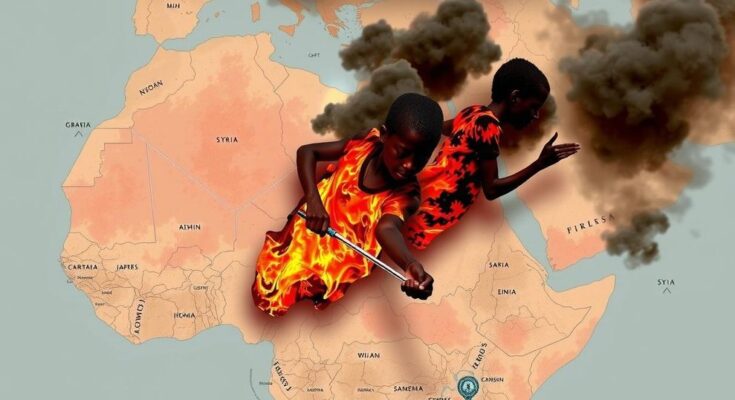The UN Mission in South Sudan reported severe escalations in violence, with rising civilian casualties and abductions amid ongoing humanitarian crises. In Syria, the WHO has initiated humanitarian flights to assist those in need. Meanwhile, Gaza faces dire conditions with recent infant deaths attributed to hypothermia, underscoring urgent health concerns and access issues in the region.
Continuing violence in South Sudan, exacerbated by communal conflicts, has severely impacted civilians, according to the latest update from the UN Mission in South Sudan (UNMISS). Reports indicate a drastic rise in abductions and instances of combat-related sexual violence from July to September of the previous year. In total, 299 non-combatants were killed, and over 150 were abducted, with Warrap State being the most affected region. UNMISS’s head, Nicholas Haysom, emphasized the necessity for local authorities to address the underlying issues driving this violence.
The situations in South Sudan, Syria, and Gaza reflect ongoing humanitarian crises fueled by conflict and violence. South Sudan has faced extensive communal violence that has led to a high number of civilian casualties and serious human rights concerns. In Syria, humanitarian aid is critical; the WHO’s air charter signifies attempts to address pressing medical needs amid ongoing conflict. Meanwhile, Gaza faces severe humanitarian crises, with reports of preventable deaths among infants due to hypothermia and challenges in accessing healthcare indicated by the continued operational issues of hospitals.
In summary, the humanitarian crises in South Sudan, Syria, and Gaza demand urgent international attention. South Sudan grapples with escalated violence against civilians, while Syria experiences a consistent effort to provide emergency health supplies. In Gaza, actionable measures to prevent further civilian suffering are urgently needed, as the current conditions continue to deteriorate. Effective resolution will require cooperation among local authorities and international organizations to bring about sustainable improvements in these regions.
Original Source: news.un.org



